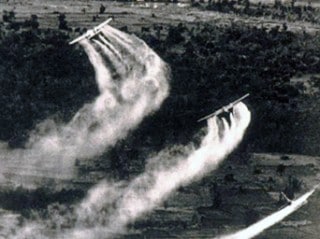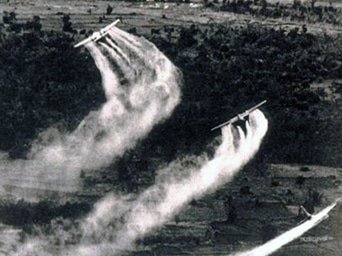 VA Publishes The Retroactive Benefit Rules For Agent Orange Claims Required By The Nehmer Court Order
VA Publishes The Retroactive Benefit Rules For Agent Orange Claims Required By The Nehmer Court Order
Since 1991, the VA has been required to follow special retroactive benefit rules whenever it grants a disability compensation claim or a claim for death benefits under the VA’s Agent Orange rules. These rules are very favorable to Vietnam veterans and survivors of Vietnam veterans and they are contained in an Order issued by the U.S. District Court for the Northern District of California in the Nehmer class action brought by lawyers from the National Veterans Legal Services Program.
The VA finally recognized that the retroactive benefit rules are complex and that VA regional offices and the Board of Veterans’ Appeals need more guidance on how to apply the rules. As a result, on August 25, 2003, the VA published detailed regulations that VA regional offices and the BVA must follow in deciding the effective date of benefits awarded under the VA’s Agent Orange rules. (The effective date of an award controls the amount of retroactive benefits to which a Vietnam veteran or a survivor of a Vietnam veteran is entitled when the VA grants an Agent Orange claim).
The new regulations also explain that if the person to whom the retroactive benefits is owed (that is, the Vietnam veteran or the survivor of a Vietnam veteran who claimed death benefits) dies before the VA is ready to make the payment, the VA does not get to keep the money; instead, the VA must make the payment to the surviving spouse, surviving children, or surviving parent of the deceased individual, or, if no such surviving family member exists, to the individual’s estate.
What follows are:
The new regulation – which is 38 C.F.R. § 3.816; and The VA’s detailed explanation of the meaning of these rules, which the VA published on January 28, 2003, when it first proposed the new regulation.
THE NEW VA REGULATION — 38 C.F.R. § 3.816
§ 3.816—Awards under the Nehmer Court Orders for disability or death caused by a condition presumptively associated with herbicide exposure.
(a) Purpose. This section states effective-date rules required by orders of a United States district court in the class-action case of Nehmer v. United States Department of Veterans Affairs, No. CV-86-6160 TEH (N.D. Cal.).
(b) Definitions. For purposes of this section-
(1) Nehmer class member means:
(i) A Vietnam veteran who has a covered herbicide disease; or
(ii) A surviving spouse, child, or parent of a deceased Vietnam veteran who died from a covered herbicide disease.
(2) Covered herbicide disease means a disease for which the Secretary of Veterans Affairs has established a presumption of service connection before October 1, 2002 pursuant to the Agent Orange Act of 1991, Public Law 102-4, other than chloracne. Those diseases are:
(i) Type 2 Diabetes (Also known as type II diabetes mellitus or adult-onset diabetes).
(ii) Hodgkin’s disease.
(iii) Multiple myeloma.
(iv) Non-Hodgkin’s lymphoma.
(v) Acute and Subacute peripheral neuropathy.
(vi) Porphyria cutanea tarda.
See for rest of report…. www.veteranprograms.
ATTENTION READERS
We See The World From All Sides and Want YOU To Be Fully InformedIn fact, intentional disinformation is a disgraceful scourge in media today. So to assuage any possible errant incorrect information posted herein, we strongly encourage you to seek corroboration from other non-VT sources before forming an educated opinion.
About VT - Policies & Disclosures - Comment Policy




